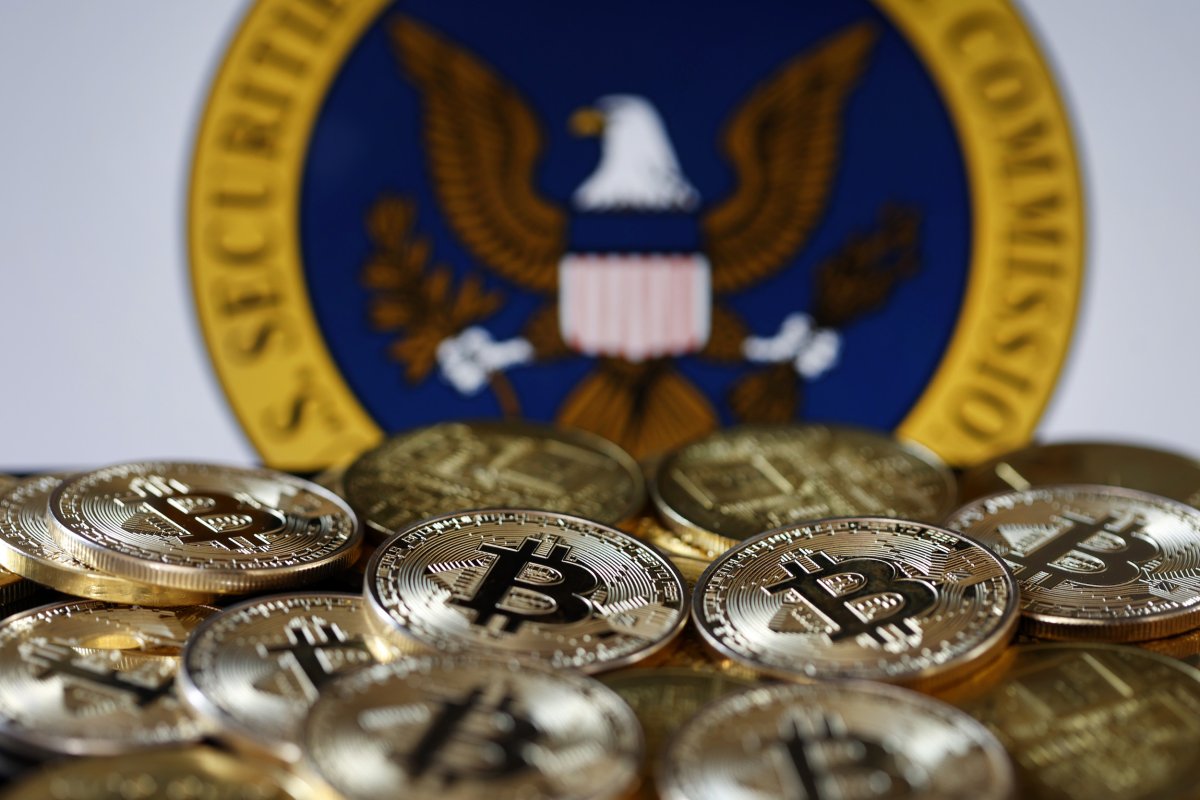In January, the Securities and Exchange Commission (SEC) approved 11 spot bitcoin exchange-traded funds (ETFs), immediately allowing retail investors access to include bitcoin in their investment portfolios. We both applauded this decision on a bipartisan basis when it was released, however, the approval of these investment vehicles is not the end of this conversation. These approvals began a process by regulators and legislators to ensure that retail investors have the access they demand to new financial products, while ensuring robust customer protections are in place.
There is one concern that needs to be addressed—concentration risk in the underlying custody of the bitcoin comprising these ETFs. The 11 spot bitcoin ETFs approved will collectively use a total of four custodians with most of the concentration in a single custodian. We want to be clear: We are not implying that these custodians aren't up to the job. We are concerned, however, that the lack of custodian options could lead to concentration risks in the bitcoin ETF market. This risk will become exacerbated as these ETFs continue to see increased inflows.

This concern is amplified by the fact that none of the custodians are banks. Banks are experts in the custody of assets and serve as the custodians for other types of ETFs. The bitcoin ETF market would similarly benefit from having regulated, supervised, and secure banking entities play the important role of custodian. This is especially important because holding private keys to bitcoin is akin to carrying physical cash. Both are bearer instruments, which means holder of the asset is presumed to be in full control. For the same reason that Fort Knox invests in robust physical security for the gold it protects, custodians protecting bitcoin within a bitcoin ETF must have robust systems in place to protect its private keys.
So why aren't banks custodians for these ETFs? The culprit for this effective prohibition on bank custodians is what's called the SEC's Staff Accounting Bulletin No. 121 or "SAB 121." Staff accounting bulletins are not usually controversial. They are typically technical accounting guidance—not the sort of thing that elicits an editorial response by members of Congress. SAB 121's effects on bank custody of digital assets, however, is cause for serious concern.
SAB 121 directs publicly traded banks to put digital assets they custody on their balance sheet, contrary to how traditional securities are treated. As Federal Reserve chair Jerome Powell said, "Bank custody assets are off-balance sheet, always have been." On- versus off-balance sheet is an important distinction for banks because they have capital, liquidity, and other requirements. Placing assets on-balance sheet impacts those requirements and results in capital and liquidity charges, which are prohibitive. Non-bank custodians do not have those requirements or impacts, hence why all of the custodians for the bitcoin ETFs are non-banks.
The problem with this approach by the SEC is that it effectively precludes banks from being able to custody these assets without severely affecting their other lines of business. As a result, banks are staying out of the game. This means the most regulated institutions in our financial ecosystem aren't available to protect investors' assets from hackers and cyber-attacks.
When it comes to digital asset custody, it's clear our most regulated institutions need to be at the table. It's the best way to avoid concentration risk in the bitcoin ETF market, and it's the best way to keep investor assets safe. The SEC could have chosen to protect investors by simply rescinding SAB 121. Unfortunately, to this point, SEC chair Gary Gensler has not indicated interest in doing so. As a result, we feel compelled to act in Congress. That's why we have introduced a bipartisan Congressional Review Act resolution with Senator Cynthia Lummis (R-Wyo.) that would effectively end SAB 121. We are hopeful that this common-sense resolution will garner bipartisan support in the House and Senate.
Congressman Wiley Nickel (D) represents North Carolina's Thirteenth Congressional District.
Congressman Mike Flood (R) represents Nebraska's First Congressional District.
The views expressed in this article are the writers' own.
Uncommon Knowledge
Newsweek is committed to challenging conventional wisdom and finding connections in the search for common ground.
Newsweek is committed to challenging conventional wisdom and finding connections in the search for common ground.
About the writer
To read how Newsweek uses AI as a newsroom tool, Click here.








